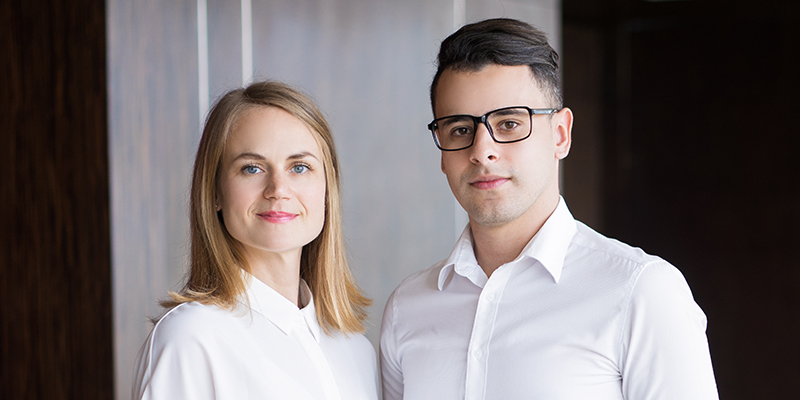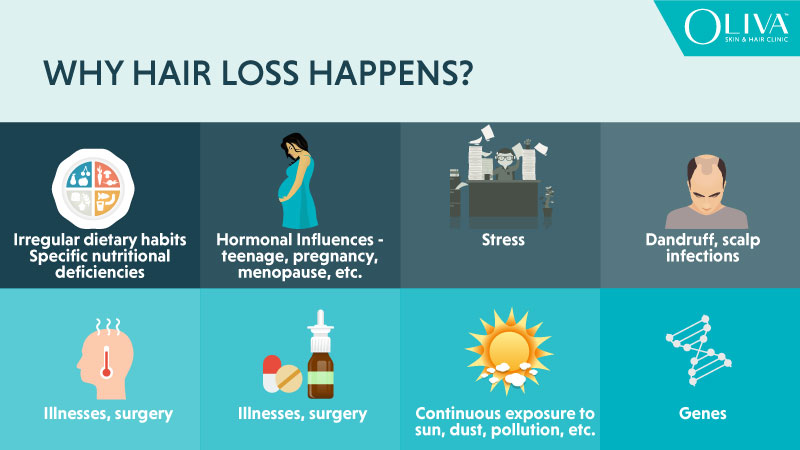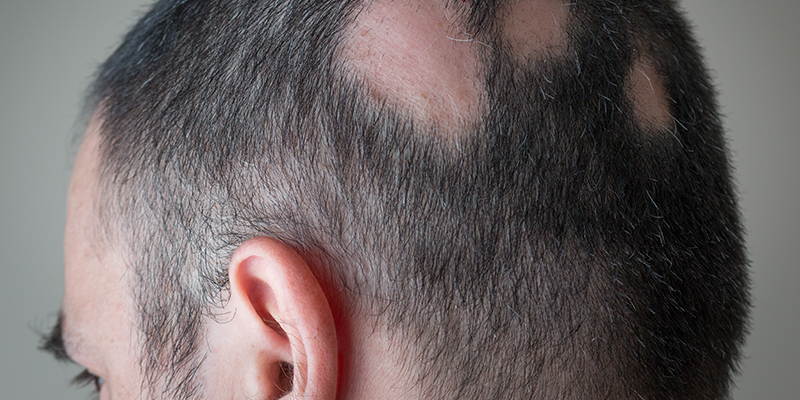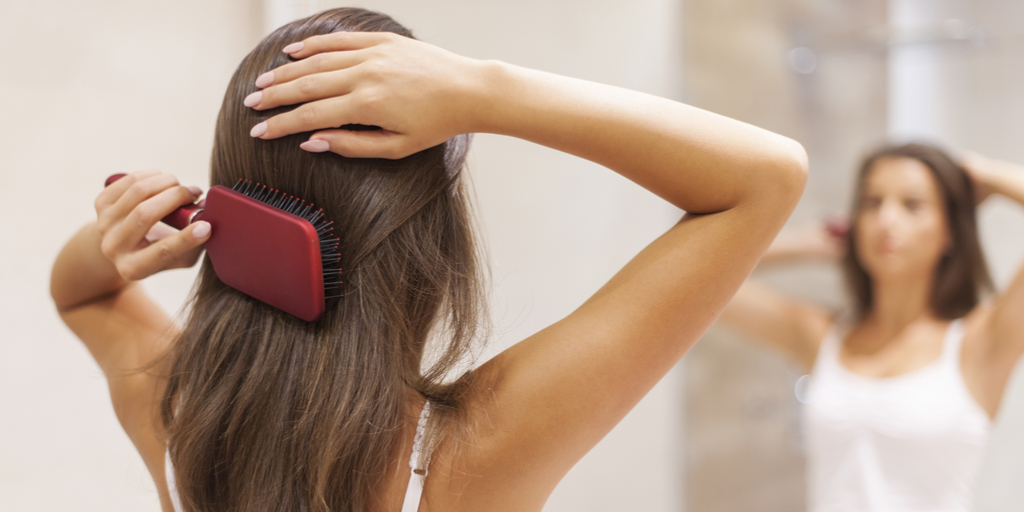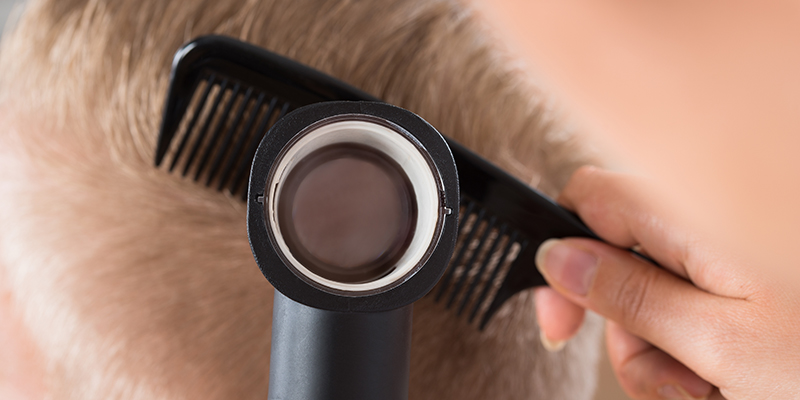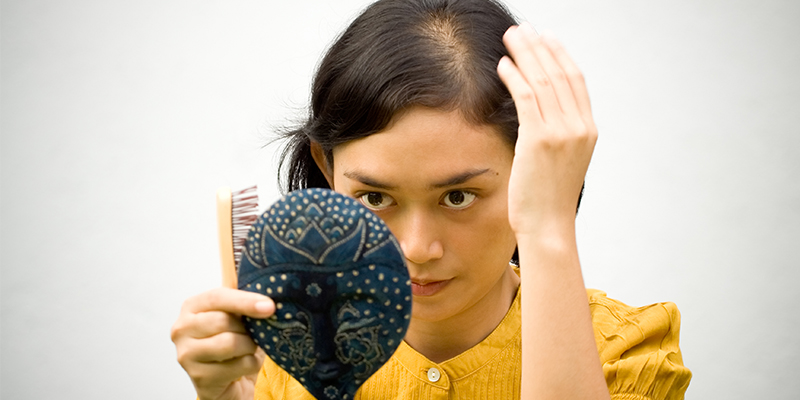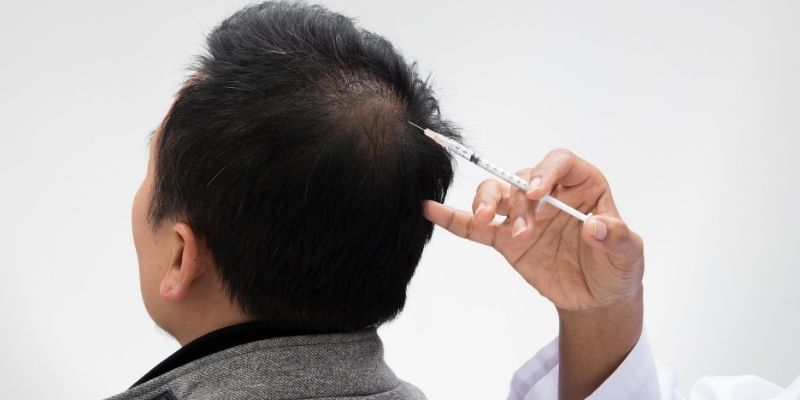How To Stop Your Hair From Falling Out?
Hair-fall is a common problem occurring in both men and women across all age groups. And then comes the search on how to stop hair fall with some nourishing ways that make your hair growth thicker and radiant. Some may resort to many unsuitable methods like diet-control, yoga, exercises, natural remedies, over the counter medicines (un-administered) etc. that do not avoid or treat hair-fall at all. Check out some details on how to avoid and stop hair fall, in the most feasible way. But before proceeding let us understand what is hair fall and what causes it in the first place?
What Is Hair Fall?
Hair fall or hair loss is scientifically known as alopecia. It occurs when the hair falls out from its root, and does not grow back. In some cases, when it does grow back, the new hair is often very weak and thin which falls off. Not to be confused with regular hair shedding, where once the normal hair cycle is complete, a new strand of hair grows back in the same healthy manner as before.
In the case of hair loss/hair fall, the new strand of hair does not grow back healthy, citing the main difference between hair loss and hair shedding. It is normal to lose around 50-100 strands of hair every day. But anything more than that is considered excessive hair fall and that should be a cause of worry.
How To Know If You’re Losing Your Hair?
When you see a lot more than the normal 50-100 strands of hair falling each day, it is a sign of hair loss. But it may not be easy to figure out hair loss until it becomes visible and shows up in the form of bald patches or receding hairline. But there are some early signs and symptoms of hair loss that can help you identify and treat hair fall as early and effectively as possible. Some of these symptoms may not be apparent at the onset, but they definitely are not something usual. Some signs include –
- Gradual thinning of hair from the crown region especially in men.
- Receding hairline which forms the shape of letter M in both men and women.
- Bald spots in the scalp that are usually circular, these may also proliferate to hair on other parts of the body.
- Loosening of hair, so much that clumps of hair comes out when you comb or just run your hair firmly through your scalp.
- Hair falling off from not just the scalp but entire body.
- Lot of hair falling on pillow, when you wake up each morning
Must Read: What Are The Early Signs And Symptoms Of Hair Loss?
What Are The Reasons For Hair Fall?
While most of the causes of hair loss are common, there are certain specific reasons for men and women, which differ, due to their hormonal and biological makeup. Some common causes of hair fall include –
- Genetic Causes – Most common cause of hair loss in men and women is pattern baldness that arises due to hereditary factors. This kind of hair loss is known as androgenetic alopecia. It is usually visible more in men as bald patches, receding hairline, hair fall at crown and temple regions leaving prominent patches. In men the causes are genes and a hormone called DHT (dihydrotestosterone) Generally it is not as visible in women and there may not be any identified causes for female pattern baldness as yet.
- Auto-Immune Diseases – Hair fall also occurs due to certain auto immune disorders where in your immune system begins to function against your own body. Genes may be responsible for the same. Some common auto-immune triggered hair loss include –
1 – Alopecia Areata – It is also known as patchy hair loss, that affects hair on entire body. The anagen stage or growth phase of the hair is affected where the immune system begins to destroy those hair follicles. This condition is common in both men and women.
2 – Lupus Hair Loss – Lupus is a chronic auto-immune disease that causes inflammation of scalp and hair loss. This disease must be treated to prevent any further hair fall - Infection Of The Scalp – Bacterial, virus, yeast and other pathogens can cause scalp infections that result in hair fall. They are common in both men and women. These include seborrheic dermatitis, ringworm, psoriasis, folliculitis, dandruff, etc. These infections may cause inflammation of scalp and can be very painful in addition to causing hair fall
- Hormonal Fluxes, Especially Causing Hair Loss In Women – Females are more prone to hormone induced hair loss, and these are more prominent at specific stages in their life. Beginning from puberty when the hormonal rush multiplies manifold, pregnancy (due to oestrogen hormone), menopause, child birth, PCOS (due to androgen hormone), etc.
- Diseases And Hair Loss – Certain conditions like thyroid, diabetes, etc. can also cause hair loss. In diabetes chances of alopecia areata are very high.
- Stress And Trauma – With persistent stress and any trauma, chances of hair fall increases. Both physical and mental stress can equally affect hair fall and they can be temporary or even permanent conditions of hair loss.
- Over Styling Of Hair – Traction alopecia is the kind of hair loss that occurs due to over styling of hair with tight ponytails, pigtails, etc. Heat based treatments for hair also cause immense damage to hair and result in hair loss. They may also case scarring and even leave permanent balding if left untreated.
- Chemo And Radiation Therapy – Both of these treatments can result in temporary or permanent damage to hair follicles. Though there are some preventive methods and specialized treatments like PRP which can help treat this kind of hair loss.
- Drug Induced Hair Loss – Certain kinds of medications may also cause hair loss from scalp and entire body. These medicines include anticoagulants, retinol (Vitamin A) and its derivatives, interferons, etc.
- Lifestyle – One of the most ignored of all causes for hair loss are the factors that are under our control. Factors like diet, fitness, nourishment for hair, premature signs of aging, smoking, alcohol, etc. also result in hair fall and if left untreated they may leave a permanent damage to your hair.
Must Read: What Are The Causes Of Hair Loss In Men & Women
How To Stop Hair Falling Out From Roots?
Hair loss from its root can be due to numerous reasons as stated above. And there must be a holistic treatment plan formulated that focusses on both treating the underlying root cause and aesthetic enhancement for the already damaged hair. Steps to treat hair fall include –
- Visit an expert dermato-trichologist and get yourself examined
- Undergo tests as suggested by your Doctor
- Elaborate your medical history and check for the causes that have led to hair loss
- Begin with a treatment for the underlying factor that is triggering hair loss
- Simultaneously get a treatment for the hair already lost, especially if visible bald patches or receding hairline stays on your scalp
- Follow-up and keep- up with your prescriptions
Treatment Options To Stop Hair Fall
Treatments must begin with administering the root cause for hair fall and also the cosmetic procedure to bring back the already lost hair. There are several advanced procedures that not just regrow your hair naturally but also bring back your confidence levels. Some of the treatments for hair loss include –
- Platelet Rich Plasma For Hair Loss – One of the most advanced and safe procedure, PRP is a therapeutic treatment which works as an adjuvant to the medications. It extracts the patient’s own blood usually from their arms. This blood is put to centrifugation (a USFDA approved machine to separate plasma from blood) which is a double spin procedure. Then the plasma is activated by putting certain chemical concoctions, and growth factors are induced in them. This plasma (rich in platelets and proteins) is injected back into the scalp on the areas of faded or scanty hair growth. This stimulates the dormant hair follicles in those areas and triggers hair regrowth and regeneration, naturally.
- Hair Transplant – An advanced surgical procedure, HT is used for certain kinds of alopecia when nothing else can show results. This is done with follicular unit extraction (FUE) where a graft (a part of scalp) with rich hair growth is removed. It is then harvested under clinical conditions and tiny grafts of a few hair are put back into the areas of baldness. This brings about renewed hair growth.
- Medicines To Stop Hair Fall – There are certain USFDA approved medications that not just help in treating hair thinning but also bring about new hair growth as well. Minoxidil (USFDA approved for men and women) and finasteride (USFDA approved for men) are prescribed by hair specialists along with above procedures (or by themselves) for treating mild to moderate hair loss. In a few weeks of use, there is a visible hair growth. It is recommended to follow trichologist’s advice on their dosage, use and time; as they may cause side effects otherwise. There are some more medications like corticosteroid injections that are directly put into the scalp, to reduce inflammation and bring back new hair growth.
- Scalp Reduction – Another surgical and invasive procedure where bald scalp is removed and hair bearing scalp areas are sewed together to bring about hair growth. This can be done along with hair transplant to enrich the procedure
Must Read: PRP Vs Other Treatments For Hair Fall – Which Is Better?
General Tips and Remedies To Stop Hair Fall
Prevention is better than cure. Though treatments bring back the natural hair, but following some tips can prevent you from the same. Being a little proactive and vigilant can save you a lot of time and money also reduce stress considerably. Some dermatologist recommended tips to avoid hair fall include –
- Use Appropriate Hair Care Products – Especially when using chemicals or heat based tools for hair; be sure to check instructions and follow advice of your hair specialist. Not every product that is marketed well, suits your hair or skin type. And if you use any unsuitable product with harsh chemicals or excess heat, then it may even cause permanent baldness.
- Limit The Use Of Cigarettes And Alcohol – Excess consumption of alcohol or smoking can cause dehydration, poor blood circulation and decrease the oxygen supply to your blood vessels. Avoid it all together if you wish to avoid hair fall.
- Practice Hair Care Routine Religiously – Wash your hair at least twice a week and avoid chemical based shampoos or conditioners. Use mild and suitable shampoo that is dermatologist recommended. Also do not brush or comb wet hair as hair may fall easily when damp.
- Eat Healthy – A balanced diet with all nutrients in adequate quantity will keep your hair nourished. Though they may not regrow your hair but taking them regularly will definitely prevent the nutrient deficiency which triggers hair fall.
- Follow Adequate Fitness Routine – Both relaxation and workout must form an important part of your fitness. Do take care of sweat when working out and cover your hair/ scalp when out in the sun.
- Visit Dermatologist – For any signs of hair loss, be sure to visit an expert, as if hair fall identified and treated in time, it recovers effectively.
- Check Hair Styles – Do not put a lot of pressure when tying your hair. Tight braids, ponytails and pigtails can cause unnecessary hair fall.
FAQ’s
- Can Cutting Your Hair Stop Hair Fall?
No, cutting your hair will not stop or prevent hair fall. Since the hair fall is occurring from its root (or follicles), you will not be able to stop it by cutting as hair-cut only trims the visible part of shaft above the scalp. It does not affect the hair growth or hair fall from deep inside. - Does Shaving Head Stop Hair Fall?
No, shaving your head will not stop or affect the hair fall at all. Since only the visible part of hair that is the shaft is removed in shaving, the problem of hair fall arises from the root and thus it cannot be prevented in this manner. - Does Nail Rubbing Stop Hair Fall?
There are many people who believe balayam or rubbing the nails will help in treating hair fall. But there is no scientific evidence suggesting for or against the same. There is always an underlying root cause, that must be examined and treated. Only then you would be able to prevent further hair fall. - Does All Hair Fall Lead To Baldness?
No, 100-150 strands of hair falling each day is normal. Our hair grows in a cyclic manner and at the end of the cycle it sheds, giving way to new hair. This does not cause balding or any prominent hair loss. But in certain kinds of alopecia, hair fall if left untreated can lead to permanent balding. - Will Hair Loss Stop When Ferritin Rises?
Yes, in some cases due to low ferritin levels (especially in women) there is a prominent hair loss. With the increase in ferritin levels, the hair fall may stop. You may need aesthetic treatments to regrow the lost hair though. - Does Hair Grow Back After Stopping Metformin?
Not really, as there is no suggestive study stating metformin is the only cause of hair loss in women suffering from PCOS. So it may or may not affect the hair at all. Metformin is a drug used to treat high blood sugar levels caused by type 2 diabetes, also for women suffering from PCOS with elevated insulin levels. - At What Age Does Hair Stop Growing?
Not all hair follicles, but some of them cease to grow as you age. With age the rate of hair growth falls, as hair strands become smaller and have less pigment. - Chemical Ingredients To Avoid, That Cause Hair Loss
Be very careful while picking hair care products and avoid chemicals like SLES (sodium laureth sulfate), parabens, sodium chloride, PEG (polyethylene glycol), formaldehyde, alcohol, trichlosan, etc. As they have adverse effect on your hair, if prolonged.






